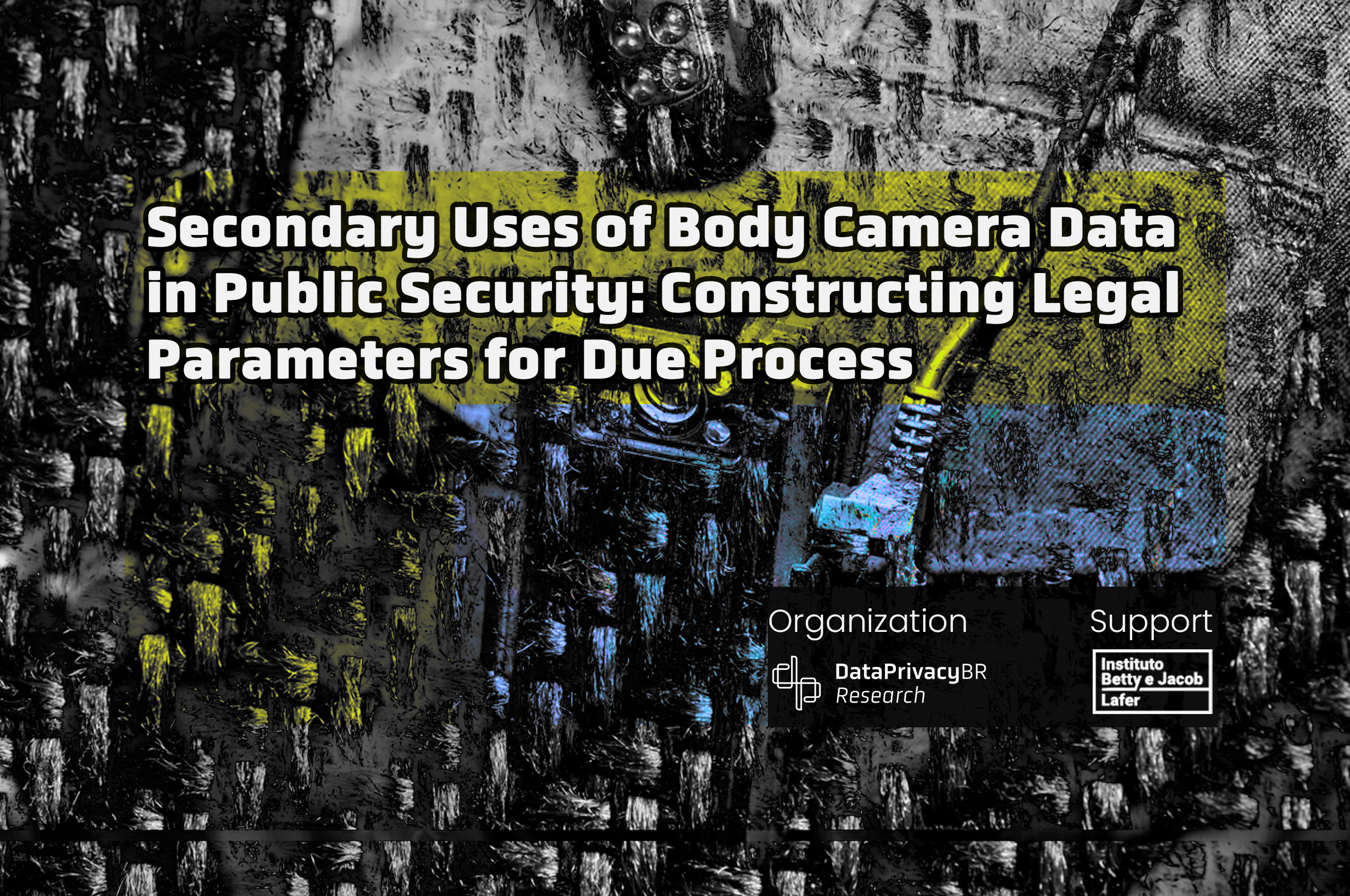Asymmetries and Power
Secondary Uses of Body Camera Data in Public Security: Constructing Legal Parameters for Due Process
Objective: To develop parameters for the secondary use of personal data collected by body cameras in public security, guided by due process of law and fundamental rights.
Duration: 2023 - 2024
Status: Em Andamento
Supporter(s): Betty and Jacob Lafer Institute
Description
Body camera systems, which are attached to the uniforms of state security agents to record the routines of professionals, have been a topic of discussion in Brazil and around the world. Preliminary studies point to the technology as a tool for protecting society in the face of challenges, such as controlling lethality in police actions.
How is the management and storage of data captured by body cameras carried out? What are the applicable procedures and technical measures to ensure the due legal process of using information obtained by such technologies? What are the possible risks and potentialities of adopting this technology for the data governance and privacy of the population? These and other questions are raised by Data Privacy Brasil in the project “Secondary Uses of Body Camera Data in Public Security: Constructing Legal Parameters for Due Process”.
Our goal is to expand the discussion on future uses of this data and ways to mitigate risks through empirical research. We aim to develop parameters for the secondary use of personal data collected by body cameras, guided by due process of law and fundamental rights.
The processing of personal data through body cameras is part of the global agenda of policy datafication, and it is necessary to recognize the central role of data protection as a foundation of democracy from the perspective of social justice.

